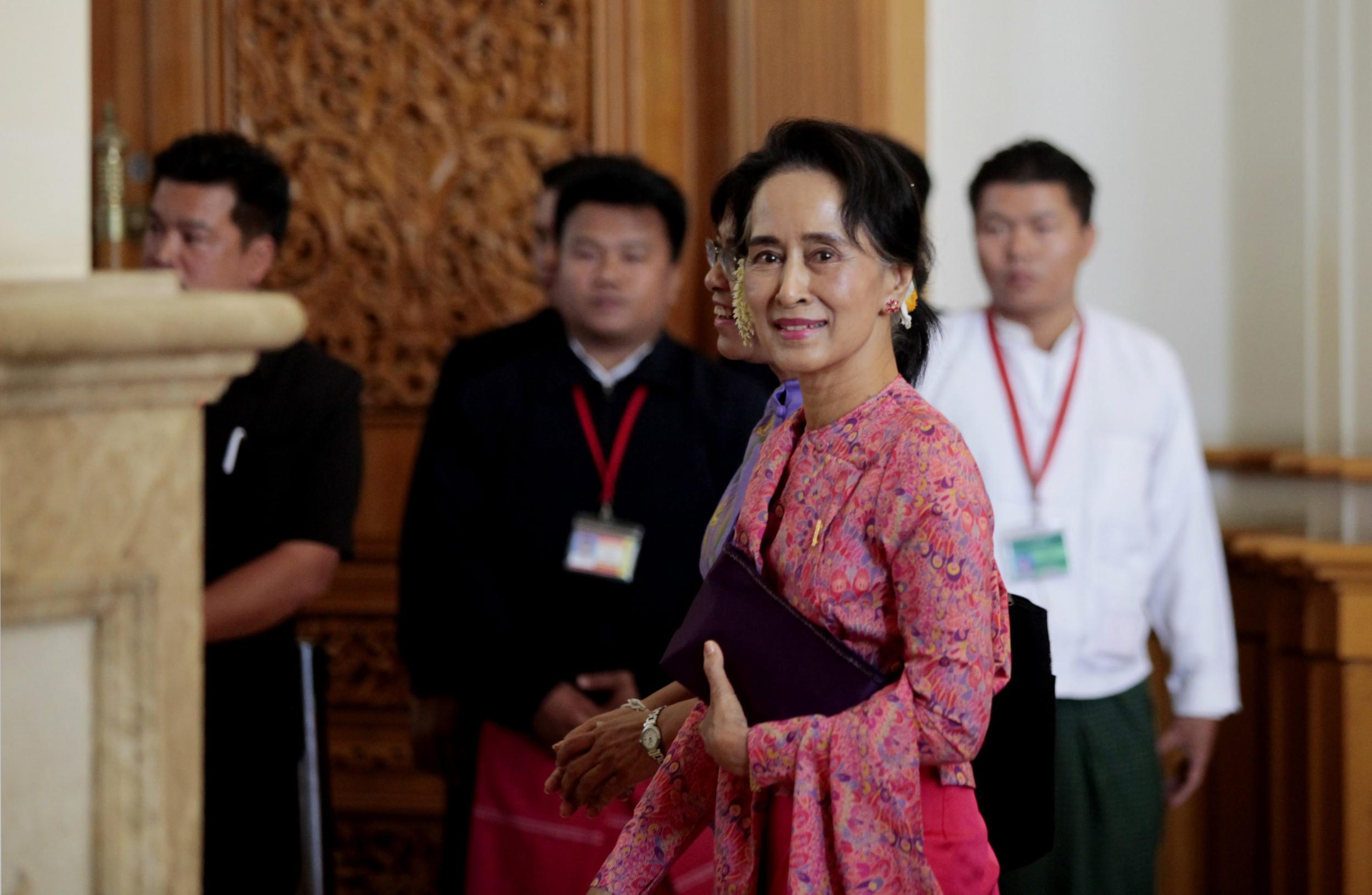Burma begins new era under Aung San Suu Kyi's party as MPs sworn in to parliament

Your support helps us to tell the story
From reproductive rights to climate change to Big Tech, The Independent is on the ground when the story is developing. Whether it's investigating the financials of Elon Musk's pro-Trump PAC or producing our latest documentary, 'The A Word', which shines a light on the American women fighting for reproductive rights, we know how important it is to parse out the facts from the messaging.
At such a critical moment in US history, we need reporters on the ground. Your donation allows us to keep sending journalists to speak to both sides of the story.
The Independent is trusted by Americans across the entire political spectrum. And unlike many other quality news outlets, we choose not to lock Americans out of our reporting and analysis with paywalls. We believe quality journalism should be available to everyone, paid for by those who can afford it.
Your support makes all the difference.Burma's parliament has begun a new and historic session dominated by pro-democracy leader Aung San Suu Kyi's party, which will install the country's first democratically-elected government in more than 50 years.
The National League for Democracy won a landslide in the November 8 elections, winning 80% of the seats in the two houses of parliament to defeat the military-backed Union Solidarity and Development Party.
Legislators from the two parties and from smaller ethnic minority parties as well as nominated military representatives filed into the cavernous parliament in the capital Naypyitaw for the session in which the members took a joint oath of office.
The session marks a historic turnaround for the NLD, which for years was suppressed by the military, which had ruled the country directly or indirectly after seizing power in 1962. NLD leaders including Oxford-educated Ms Suu Kyi, 70, and other critics were jailed, and overt political activity was crushed.
The south-east Asian nation started moving away from dictatorship towards democracy in 2011, when the military rulers agreed to hand over power to a nominally civilian government headed by President Thein Sein, a general-turned reformist.
He will stand down in late March or early April when an NLD president takes over.
Ms Suu Kyi is constitutionally barred from taking the presidency and has vowed to rule from behind the scenes through a proxy. She has not announced who her party will nominate for president.
"We don't know exactly when the presidential election will happen. We cannot tell you anything about who will be nominated as the presidential candidates as well," said Zayar Thaw, an NLD politician.
Despite its landslide victory, the NLD will in practice have to share power with the military, for which the constitution reserves 25% of the seats in parliament. Ms Suu Kyi has met senior military leaders to try to ensure a smooth change of government and they have vowed not to interfere.
Thein Sein's military-backed USDP won a 2010 election in which the NLD refused to participate, protesting that it was held under unfair conditions. After several changes in the election law, the NLD contested several dozen by-elections in 2012, winning virtually all of them.
The military called an election in 1990, which Ms Suu Kyi's party won handsomely, only to see the results annulled by the military and many of its leading members harassed and jailed.
Ms Suu Kyi was put under house arrest prior to the 1990 election and spent 15 of the next 22 years mostly confined to her lakeside villa in Rangoon. She was under house arrest when she won the 1991 Nobel Peace Prize.
Establishing democracy is only one hurdle the country, also known as Myanmar, faces. The new government will also have to contend with various ethnic rebellions in several parts of the country.
The military-backed government signed a peace pact with more than dozen smaller ethnic armies before the elections but major groups have stayed away, and fighting continues in many states. Most are fighting for autonomy and rights over their resource-rich land.
"I hope this will be a good opportunity for us to speak out for the ethnic people and demand indigenous rights," said Lama Naw Aung, a lower house member from the Kachin State Democracy Party, representing the Kachin minority engaged in ongoing battles with the army in the east of the country.
"I think there will be a change because Aung San Suu Kyi might want to finish the work for the ethnics that her father didn't get a chance to do," he said, referring to Burma's independence hero Aung San who united various national groups.
He and six of his colleagues were assassinated in July 1947, six months before Burma's independence.
Press Association
Join our commenting forum
Join thought-provoking conversations, follow other Independent readers and see their replies
Comments